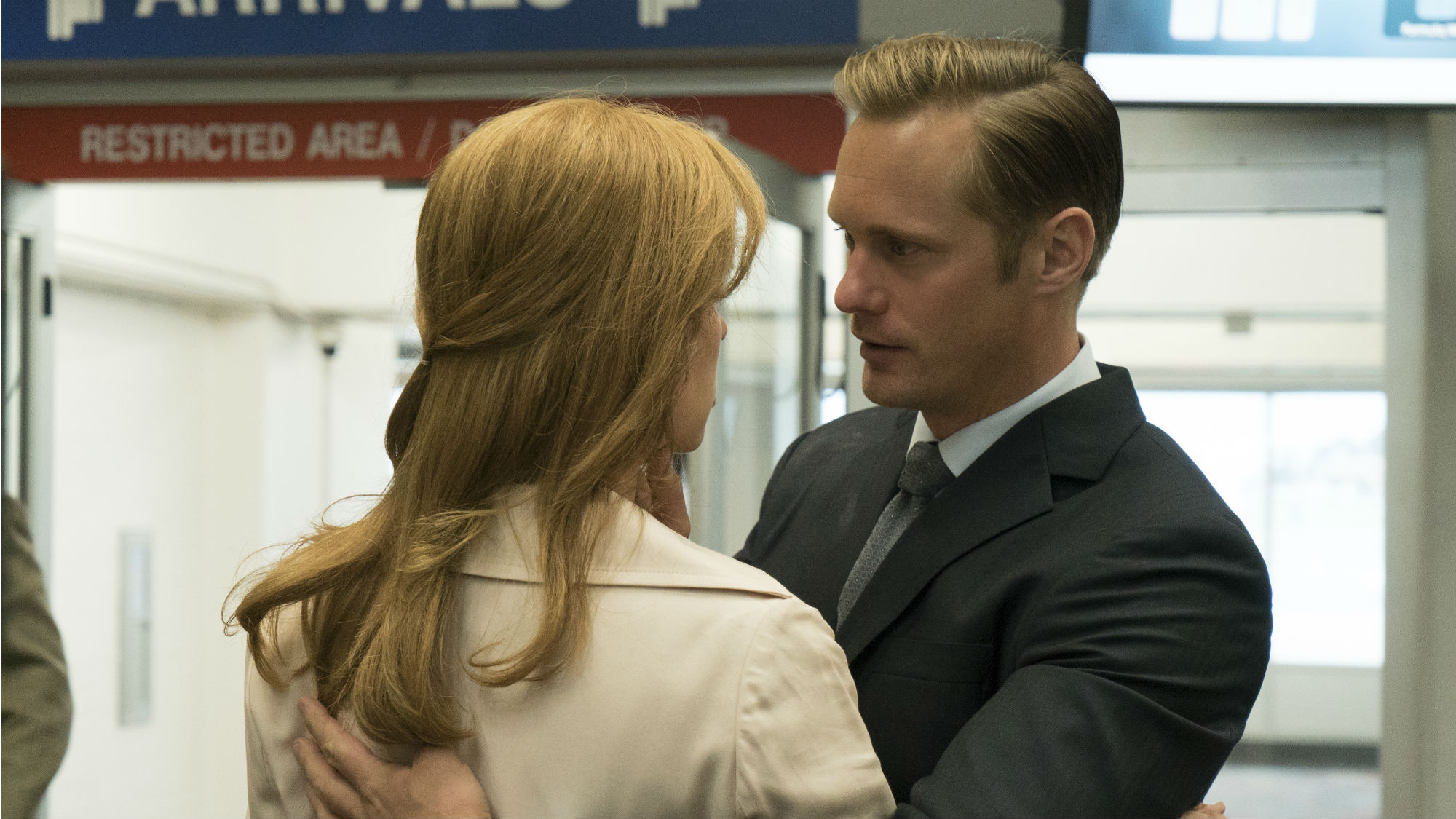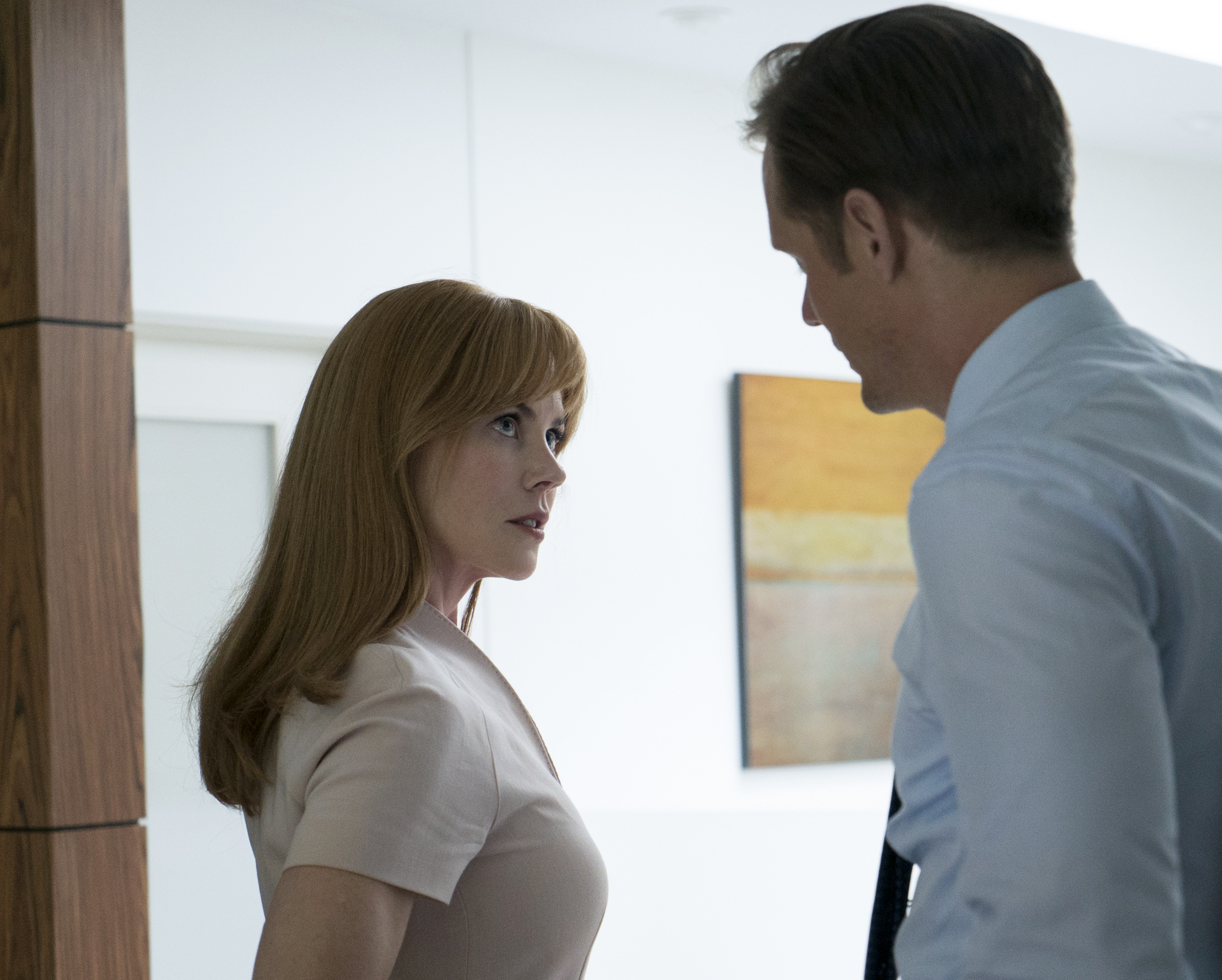This is what a domestic violence expert thinks about Big Little Lies
We asked Refuge CEO Sandra Horley to give us her opinion.


We asked Refuge CEO Sandra Horley to give us her opinion.
With its puzzle of intriguing characters and smart script, Sky Atlantic drama Big Little Lies has gripped us from the get-go. But while all the characters in the show have skeletons, the secretly abusive behaviour between the outwardly 'together' Celeste (Nicole Kidman) and Perry (Alexander Skarsgard) is perhaps hardest to watch. But just how true to life is the controlling behaviour and violence the show uncovers with each new episode? We asked Sandra Horley, CEO of domestic violence charity Refuge, to watch the show and tell us what she thinks.
'TV drama has long been a powerful medium for raising awareness of domestic violence. Episode by episode, series by series, well-informed writers can portray the insidious nature of a crime that almost always begins with a man’s gradual domination of "his woman".
Last year, the nation listened in horror as The Archers character Rob Titchener slowly, deliberately eroded his wife Helen’s independence. Rob’s psychological torment was broadcast into listeners’ living rooms and kitchens for months, demonstrating what Refuge and the 5,000 women and children we support on any given day know all too well: that domestic violence is not just black eyes and broken bones, but a systematic pattern of behaviour that creeps, charms, and controls. If a woman changes how she acts because she is scared of how her partner will react, she is being abused.
Now, we have a similar offering from across the Atlantic. Sky Atlantic’s new series Big Little Lies features Nicole Kidman as Celeste, a woman who, on the surface, has a perfect life: a successful, attractive husband, Perry; a career as a high-flying lawyer behind her; adorable twin sons; and a property on the coast of California straight out of a luxury magazine.
In the first vignette of Celeste’s family, Perry is showering her with kisses as they watch their sons play. Perry cannot keep his hands off Celeste, constantly remarking on how beautiful she is. He is charm personified. Yet by the end of the first episode, we realise that his care for Celeste masks a darker truth – behind closed doors, Celeste is being terrorised and controlled by a man who has the ability to inflict devastating emotional and physical damage.
Perry is an archetype of what I call, in my book, Power and Control: Why Charming Men can make Dangerous Lovers, ‘Charm Syndrome Man’: a man who presents himself as the caring, perfect husband but who – in private – controls and dominates his partner, flipping between charm and rage like Dr Jekyll and Mr Hyde.
Celebrity news, beauty, fashion advice, and fascinating features, delivered straight to your inbox!
Videos you may like:
Video you may like:

There is a common myth that domestic violence is about a man losing control – "he just saw red", people say. On the contrary, it is about gaining and maintaining control. Each time Perry abuses Celeste, he is sure to remind her soon afterwards of the man with whom she fell in love. He kneels on the floor, grovelling; sends her flowers from business trips; "surprises" her in the shower with a necklace – in a shot that simultaneously reveals bruises from an assault. In common with so many abusers, Perry manipulates Celeste into forgiving him and even feeling sorry for him.
For Perry, any threat to his control and authority must be neutralised, which is why he balks at the thought of Celeste returning to work. When Celeste is reminded of how much she enjoys using her legal mind, Perry’s response is one I have heard a thousand times when a man feels threatened by forces outside the relationship. “I am concerned about your stress level… I’m just looking out for you”. When she says she is simply helping a friend, he tells that her friends don’t really care about her, that he is the only one who will be there if she “falls apart again.” Again, his control masquerades as care, and he takes the opportunity to undermine Celeste by reminding her subtly of her perceived vulnerability, too – how would she survive without him?
These are lines an abuser will peddle time and again to manipulate and gain control of his partner. Perhaps he does not want his partner returning to work. Perhaps he disapproves of her friends, criticises her family or makes fun of her in public. Whatever it is, there is a common thread: Charm Syndrome Man typically isolates a woman until her world is so small that he is all she has left.
Blaming the woman, and minimising or justifying his behaviour, is another way abusers gain control; and Perry is an expert. In Episode 2, he tries to make Celeste feel guilty for taking their sons to school without him. “You wanted me to miss their first day”, he says. The implication is that she is a bad wife and mother, that she is disobedient; that whatever happens next, she is to blame. Perry tells their therapist that he is only abusive because he is afraid of losing her. He is trying to create sympathy for himself. Again, it is Celeste’s fault; as if she is somehow deficient for not demonstrating her love for him and making him feel more secure.
Viewers might wonder why Celeste minimises the ‘fights’, just as Perry does. Why does she put up with his voracious appetite for “crazy angry sex”, viewers might say, as if Perry would just roll over and kiss her goodnight if she said no. But Celeste, like many abused women, denies what is happening because facing up to the truth – that she is being abused by the person she loves and trusts most – is too painful. A woman may believe her partner when he says it is her fault, because at least that gives her some semblance of control. If I just make sure that I do not work, or do anything with the kids without him, and give him just the right amount of affection, then he will stop abusing me, she might think.

At this point in the series, we do not know how Celeste will respond to Perry’s continued abuse. Ending a relationship that has consumed and controlled every aspect of a woman’s life is incredibly difficult. Celeste may leave, despite the odds stacked against her; or she may stay, altering her behaviour just to survive from one day to the next. In real life, the most likely scenario is that Perry’s abuse will escalate in frequency and severity over time. Two women a week lose their lives to domestic violence in England and Wales alone, and women are most at risk of homicide at the point of leaving.
However the story ends, women like Celeste should never be judged for how they respond to abuse. We should not be asking "why doesn’t a woman just leave?" Instead the question we should be asking is: "why do men abuse women?" Men abuse because society gives them tacit permission to do so. Abusive men are simply reflecting in their individual relationships how women are treated in society as a whole – a society that still allows women to earn 20% less than men, and uses women’s bodies as "objects" to sell everything from cars to cocktails. As long as there is gender inequality at the levels we see today, there will be men who treat their wives and girlfriends with their contempt. In portraying the myriad ways a woman’s life is controlled by her abuser, I hope Big Little Lies shows viewers that it is never as simple as "just leaving".
By Sandra Horley, CEO of Refuge.
If you think you may be experiencing domestic violence, Refuge can support you - visit refuge.org.uk for support and information.
If you would like to support the work of Refuge, watch and share their brand new music video (above) with BRIT-nominated singer-songwriter Frances, which shows women they are not alone.
